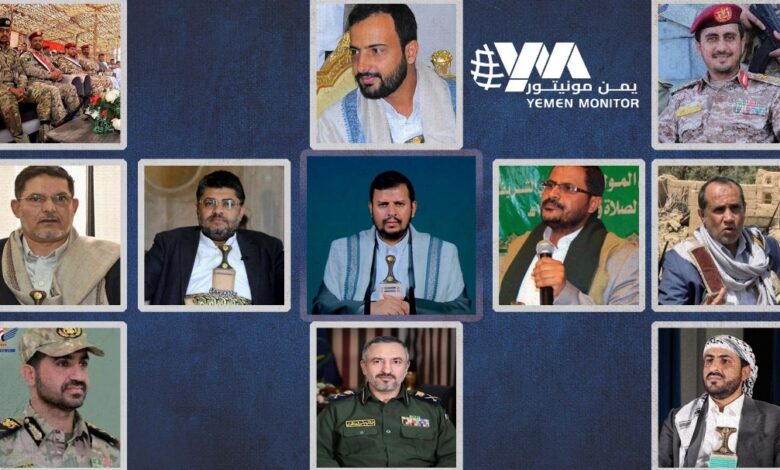Exclusive: Houthis Take New Security Measures Amid Fears of Assassination of Group Leaders

Yemen Monitor/Sana’a/Exclusive:
Informed sources within the Houthi group said on Friday that the Yemeni movement is taking seriously the Israeli and US threats to assassinate its leaders in Sana’a and other governorates under its control.
The well-informed sources, who spoke to “Yemen Monitor” on condition of anonymity for fear of Houthi retaliation, revealed these details.
The sources pointed out that the Houthi leader and most of the first and second-tier leadership move within strict security measures to hold meetings and move between areas and tasks.
The Houthis have held most of their communications through a closed communication circuit that was recently developed for speaking, and the previous communication circuit has been abandoned.
On Thursday, Abdul Malik al-Houthi, the leader of the group, abandoned his weekly speech for the first time since October 2023, and the group did not mobilize in weekly demonstrations in the Seventieth square.
The Israeli Channel 12 published photos of the targets of the upcoming assassinations, including leaders in Iran and the resistance axis led by it in the region, including a photo of “Abdul Malik al-Houthi.”
The Houthis expect that the Israeli response will also target them following Iran’s massive missile attack on the first of this month, which was carried out in retaliation for the assassination of Palestinian and Lebanese leaders within Tehran and Beirut.
A senior official in the group told “Yemen Monitor” that they have information about a list of targets for the current leadership.
Most of the leaders have replaced their bodyguards with first-degree relatives and have minimized their movements to only when necessary, receiving instructions from a special circle connected to the Houthi leader and distanced from the state’s governmental apparatus or the group’s parallel entities, according to the official.
Another official adds that communication is being maintained, and security precautions are being taken for the group’s leaders located outside the country, including financial facilitators, negotiators, and officials in charge of external affairs.
The Israeli assassination campaign against first- and second-tier leaders of the Lebanese Hezbollah, including the party’s Secretary-General Hassan Nasrallah, raises concerns about potential breakthroughs within the Houthi movement, as stated by another official in the group.
Following Hassan Nasrallah’s death and the weakening influence of Lebanon’s Hezbollah, new questions have emerged about the possibility of the Houthis increasing their influence as active participants within Iran’s axis in the Middle East. Hezbollah leaders have played a pivotal role in leading Iran’s regional policy, but the current changes have become tangible, and Iran’s options for alternatives have become extremely limited.
On Sunday, the “Long War Journal,” affiliated with the Foundation for Defense of Democracies—an Israeli-funded think tank that promotes its narrative—published the leadership structure of the Houthi group, highlighting 25 leaders within the armed group. This includes the group’s leader, two of his brothers, his uncle, the son of the group’s founder, its official spokespersons, and the commanders of the group’s naval and air forces who have become prominent in Red Sea attacks.
Less than two weeks after the start of Israel’s brutal campaign against Gaza Strip on October 7th, the Houthis launched ballistic missiles and drones towards Israel. Given the distance of over 2,500 kilometers between Sana’a and Tel Aviv and the limited capabilities of the Houthis’ military, this action seemed more like a declaration of solidarity and a show of force than an actual military attack on Israel. However, the Houthis soon began targeting ships associated with Israel while crossing the Red Sea, targeting more than 180 commercial vessels, seizing one ship, and sinking two in a campaign that also resulted in the death of four sailors.
In response, the US and Britain have been launching airstrikes against Iranian-backed Houthi group since January 11th. As a result, the Houthis announced the expansion of their operations to include US and British ships.




